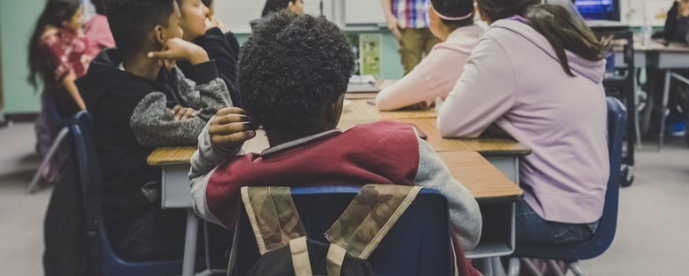In a collaborative effort to equip parents with the information necessary for the upcoming school year Illinois Latino News, WBEZ, and Association House of Chicago hosted the free, virtual and bilingual event: Community Conversation: Student Mental Health in Chicago Schools on August 18.
The online conversation brought together a variety of mental health experts and educators to discuss resources available for Chicago parents and students.
Araceli Gomez-Aldana of WBEZ moderated the event which consisted of five panelists: Myra Rodriguez, Community Health Supervisor at Association House; Dr. Tara Gill, Psychologist and Mental Health Consultant at Lurie Children’s Hospital Center for Childhood Resilience; Catherine Whitfield Martin, Principal at Charles Sumner Math and Science Academy; Brian Coleman, Counselor at Jones College Prep and President at Illinois School Counselor Association; and Lucia del Rincon Martinez, Trauma Therapist at La Rabida Children’s Hospital Chicago Child Trauma Center.

In the weeks leading up to the event, Illinois Latino News and WBEZ shared a survey that gave the public the opportunity to engage in the conversation by telling the newsrooms exactly what they wanted to know. These responses helped develop the final structure of the Community Conversation.
According to survey responses, the mental health of students is on parents’ minds. Experts validate these concerns, with 2021 data from the CDC revealing that 37 percent of high schoolers in the U.S. reported poor mental health during the pandemic and 44 percent saying they felt persistently sad or hopeless during that year. The American Academy of Pediatrics even declared the state of adolescent mental health a national emergency.
One concern shared in the survey asked how parents can know the difference between mental health issues and a child just being a child. Rodriguez said that it’s easy for parents to assume some behaviors are due to developing adolescents, especially in teenagers, but that parents should be concerned if they start to notice patterns or differences in eating or sleeping habits that are not typical for that child.
Parents also voiced concerns with helping their children deal with stress from school and pressure from extracurricular activities.
“I think it’s really important for parents to recognize that they can set the tone in their household based on their family values,” said Dr. Gill. She said it’s important to model emotional safety and healthy ways to deal with stress because children pick up on how this is dealt with at home.
Cultural barriers can impact how mental health is addressed.
“In the Latino community talking about mental health, disorders, illnesses, it’s still very taboo. You know, there’s a lot of these assumptions that one is weak minded or it’s all in your mind, it’s all in your brain, don’t think about it,” explained Rodriguez.
This stigma, which exists in both the Latino and Black communities, often prevents in need people from seeking resources. Dr. Gill said that it’s okay to stay true to your cultural traditions while also implementing a healthier approach to mental wellness.
The event focused on helping parents understand the resources available at the school level. Both Whitfield Martin and Coleman expressed that they’ve seen a shift in how Chicago schools treat mental health and wellness, with much more resources being available now. They said that it’s important to understand the makeup of a student’s school’s system, who the key staff members to turn to are and common language used in order to best take advantage of what’s available in each school.
“It’s about reaching out, finding who your support players are and normalizing that trusting, collaborative relationship that’s so important,” said Coleman.
To assist in establishing this relationship with your child’s teacher, Whitfield Martin suggests being transparent about your child’s specific needs and approaches you know work best for them. For parents who feel hesitant to engage with schools due to language barriers, Coleman ensures that plenty of resources are available to help families with these needs, but that parents have to express that they want help.
“The more information that a school has, then they can meet you where you are but we have to first know where you are, which means we have to first know you,” said Coleman.
Viewers who would like to provide feedback of the event can do so in English here or in Spanish here. WBEZ has compiled a resource guide to keep students happy and healthy this school year. This list is expected to be translated and available in Spanish in the coming weeks.
